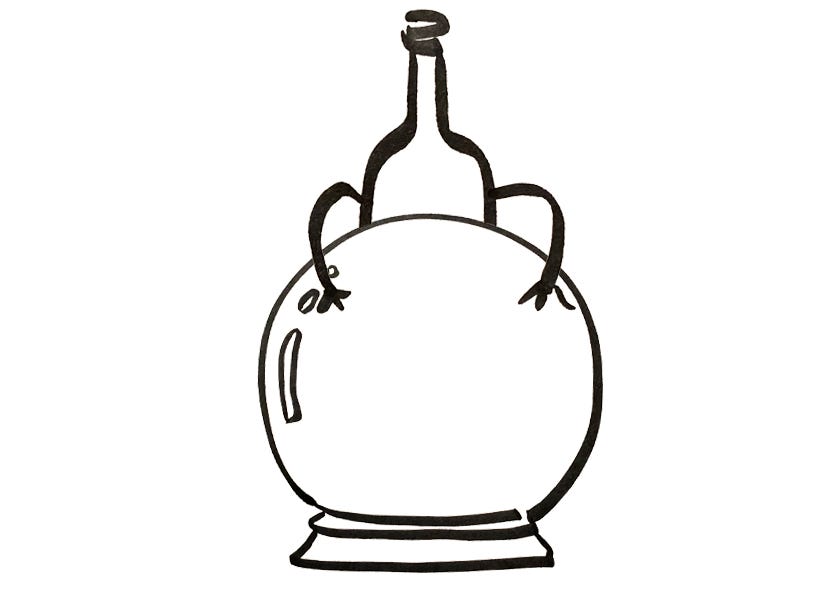Predictions are less useful than accurately understanding the present
What a quotidian bottle cap can teach suppliers, importers, and distributors
Most adults don’t know how to work the child-resistant cap on prescription bottles. This is not to say they don’t know how to get those little orange bottles open. But, a lot of people aren’t aware that, once open, the lid can be flipped over and screwed back on. Viola! Now the bottle is relatively hassle-free, easy to open, and no longer childproof. It’s phenomenal product design paired with poor PR. Nonetheless, most people simply don’t know what they’re dealing with, be it a prescription bottle or a business.
This is reason enough to be ever skeptical of this industry’s obsession with predicting the future.1 From trend forecasting to inventory planning, wine and spirit companies are populated with soothsayers tasked with trying to make sense of that which has not yet happened.
Make no mistake: inventory planning is necessary. You don’t want to be the one responsible for running out of that hot, new wine or spirit. However, the successful execution of this practice is more predicated on understanding relatively recent sales patterns and pairing that with logistical expertise than it is on guessing what the future will be like. Even then, results may vary, and you may find yourself sitting on too much or too little stock.2
As they like to disclaim in the investment world, “past performance is no guarantee of future results.”
That, of course, doesn’t stop many from attempting to divine shortcuts to success. All too often we get in our own way and the human tendency toward overconfidence is greatly responsible for many near-miss forecasts.3
All of this is alright.
Knowing that we can’t know the future is a gift. It allows us to focus on the present, a temporal space that business rarely gives its due. There’s no corporate analog to personal meditation. Most companies are unable to fully grasp the present. Managers don’t know what their sales team is doing. Suppliers don’t understand how their importers function. Business owners might spend time in the trenches trying to figure why certain things work, but fail to recognize the value in knowing why others don’t.
We’d all benefit from knowing how to take full advantage of the versatility of a child-resistant bottle cap before hoping that someone needs to invent a better version in the future.
How much do you really know about how your company operates today?
If the time, energy, and resources spent trying to figure out what comes next were invested in solving today’s problems, tomorrow’s companies might be better, smarter, and more dynamic.4 Then again, that’s just another prediction.
From dubious trends to utter nonsense, the media is also guilty of over-emphasizing the need to “understand” the future of the wine and spirit business. Here is some recent evidence of said crimes. The desire to be well-read on the latest and greatest perpetuates the myth that those who are “in the know” have some edge where none exists.
Just ask any importer who inbounded Barolo or Bordeaux in March 2020.
Here are three ways people tend to be overconfident. We can over-rank our own personal abilities. No one likes to think of themselves as average. We succumb to desirability bias; we think something is more likely to happen because we want it to happen. We fall prey to the illusion of control. Anyone who has ever played Mario Kart and found themselves physically leaning, controller in hand, to the left or right has lived this bias.
A great place to start is by slowing down and examining, really examining, what happened last week. What went well and what didn’t? This process starts with documentation because you need to be able to reference some thought, action, or process that could be improved upon if only it were remembered.



Love the bottle cap analogy! So important to know what is going on in the present as much as what you want for the future. You need to know where you fail to do better and what works to keep it alive.